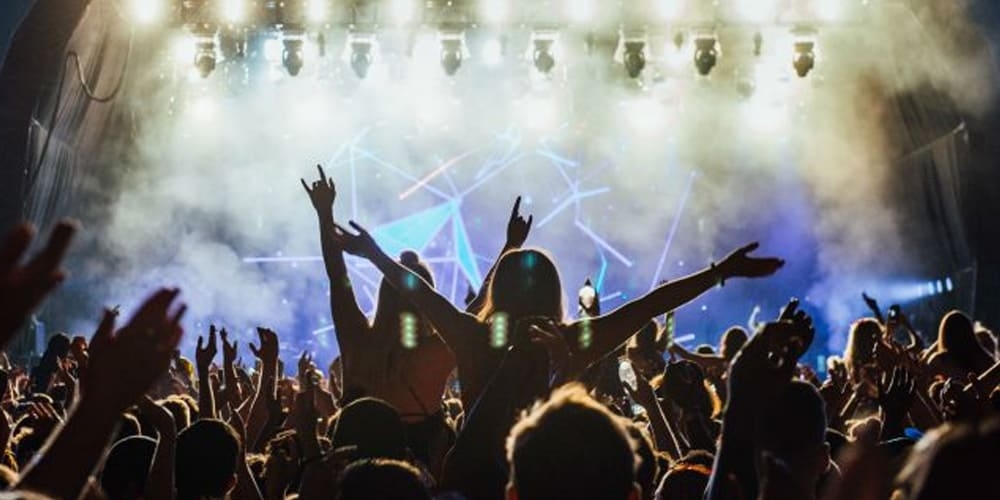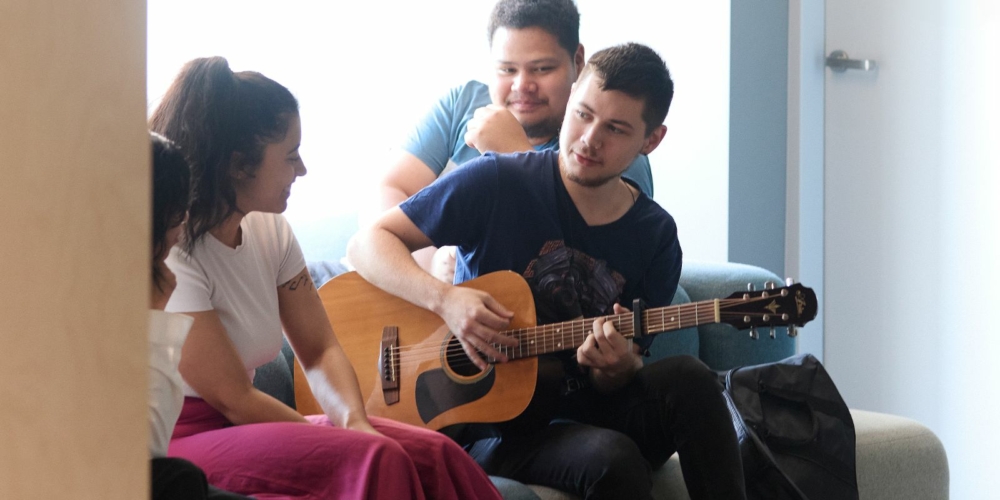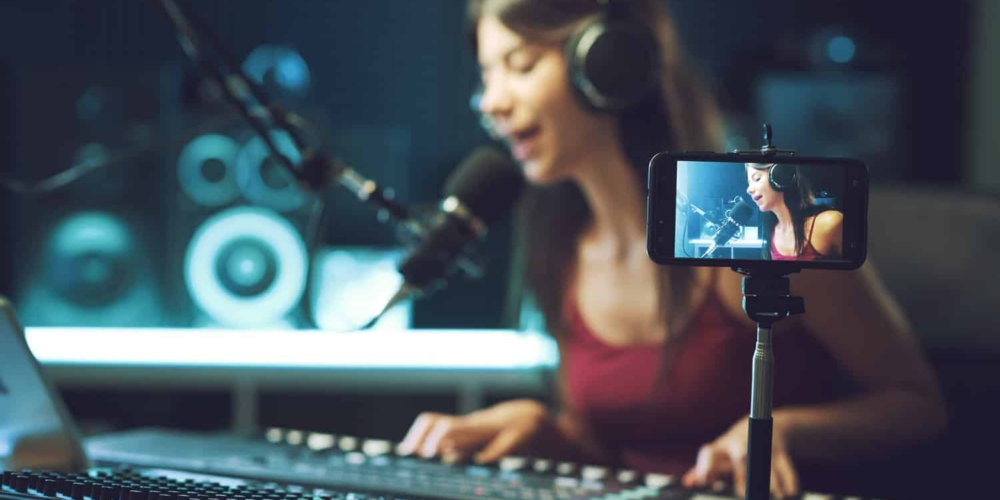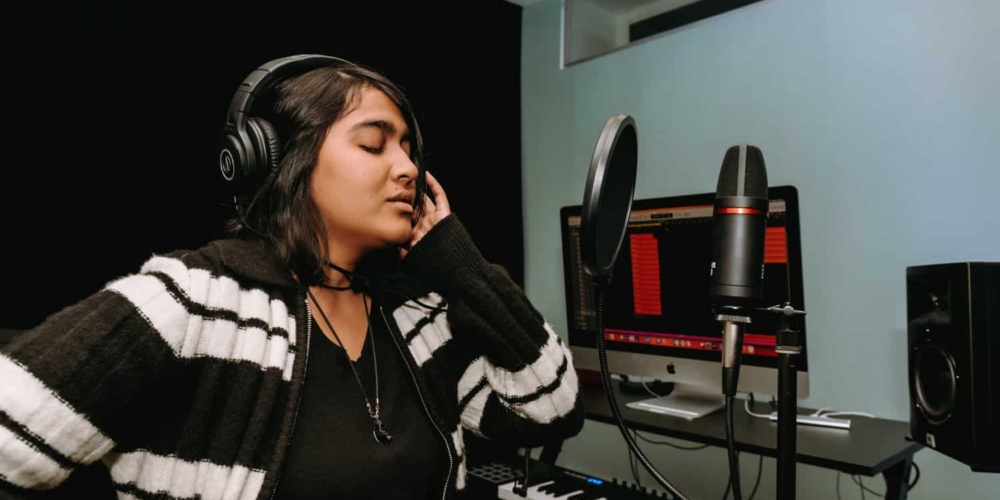From the very outset, the global COVID-19 pandemic has been an unmitigated disaster for the music industry. The stories of cancelled music festivals, tours and gigs of all sizes have reverberated around the world.
First and foremost, there’s a societal cost to this. Playing and listening to music is something that mankind has been doing enthusiastically since we crawled out of the cave. It is an essential element of the human condition … and one of life’s greatest pleasures. We’re living through the first era in human history in which the simple pleasures of singing, dancing and, well, getting down have been forbidden.
The economic losses arising from tour cancellations are virtually incalculable. The live music industry is a multi-billion dollar juggernaut that supports not only musicians, but a veritable army of technicians, roadies and administrators. Gigs create massive revenue for venues, staging companies, ticketing companies, merch sellers, food and beverage stalls and car parks, not to mention hotels and airlines.
There’s probably no need to feel sorry for The Rolling Stones or U2, but they’re not the musicians we should be worried about. In Australia alone there are tens of thousands of musicians who rely on gigs for their financial livelihood. Many of these musicians have not been paid for 12 months, and many are being forced to consider the viability of remaining in the industry. Some have been forced to seek alternative employment, assuming that’s even a possibility.
Not surprisingly, the pandemic has caused a surge in reports of mental health issues amongst musicians and other music professionals. Being a musician can be challenging enough at the best of times – but when you’re denied the opportunity to do the one thing that gives your life meaning, the world can seem like a difficult place.
Federal and state governments have earmarked tens of millions of dollars to ease the burden on Australia’s creative sector, and specifically to address the mental health challenge, but I’m yet to meet anyone that believes that this relief is sufficient to make up for the loss of income, much less the loss of meaningful and rewarding work.
But thankfully, the picture isn’t quite as dismal as it might look. 2020 data is starting to emerge which indicates that the world has spent their lockdown listening to more music, playing more music, writing more songs and spending more on equipment, than ever before.
Paradoxically, it has been a fantastic year for recorded music. Great music is being released, and there’s a large and enthusiastic audience ready to lap it up. Even as I write this, a young artist by the name of Olivia Rodrigo just broke the record for the most streams of a single track in one day (15 million, in case you’re interested). The song is called “Drivers License,” and it’s phenomenal success is proof that great artists can still emerge in even the darkest times.
Global streaming revenues have been growing at a very healthy rate for several years, but the 10% surge in global music streams in 2020 reflects our new reality – more time around the house, with far fewer distractions. We’ve had to satisfy our desire for musical experiences by going online rather than going out. A revolution in our heads, to be sure.
Sales of music instruments have risen dramatically during lockdown, along with home recording equipment and software. Online learning platforms such as Fender Play are making it easier than ever to learn an instrument – and the anecdotal evidence suggests that many people have chosen to use their spare time to do just that.
Many professional or semi-professional musicians have used the lockdown months to write and record new material, adapting to their altered circumstances by learning how to collaborate virtually with other musicians all over the world. We haven’t even heard most of these songs yet – but it’s not hard to imagine that there’s some incredible stuff out there.
There has been an explosion of innovative new technologies designed to make the process of recording music cheap, easy and accessible to anyone. The do-it-yourself era has well and truly arrived; one of the biggest albums of the past decade, Billie Eilish’s When We All Fall Asleep, Where Do We Go?, was produced by her brother Finneas O’Connell in his bedroom.
If it’s possible to take anything really positive from COVID-19 (and I’m not really sure that it is), then it’s the fact that the pandemic has forced the music industry to find new audiences, new revenue streams… and new ways to engage fans. Perhaps for too long, the industry has relied on live performance as the only true way to forge an authentic connection between artist and fan, but those days are over.
Right now, there’s a new spirit of partnership between venture capital, music companies and tech entrepreneurs as we seek new ways to package music for the digital age. Given the accelerating pace of digital innovation and artificial intelligence, it’s safe to assume that evolution in the music space is only just getting started.
The music industry won’t just survive COVID-19. We’ll learn lessons from it, we’ll adapt, and we will evolve. Based on current trends, we’ll also grow – and that means more jobs, more opportunities, and more revenue for artists and other creators.
Music is a life force that can’t be dimmed by anything – even catastrophes such as war or disease. The history of the music industry has been one of constant invention and adaptation – to new technologies, new trends and shifts in the zeitgeist. We’ve done it before, and we’ll do it again.




